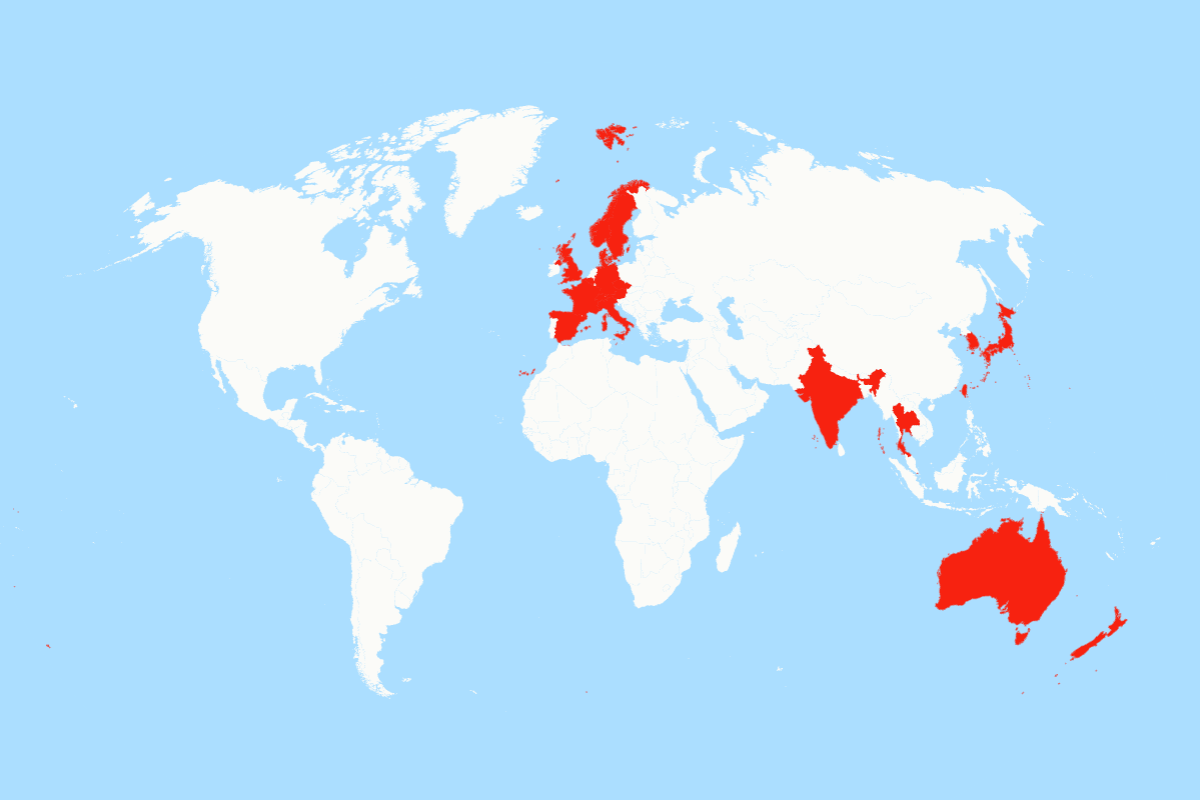Postal services in more than 20 countries have announced the temporary suspension of most parcel shipments to the U.S., citing uncertainty over the effects of a Trump administration policy change.
The suspensions, which affect shipments of goods valued under $800, follow a recent executive order signed by U.S. President Donald Trump that would effectively end the “de minimis” exemption on August 29.
This rule has allowed goods worth less than $800 to enter the U.S. without duties, taxes or lengthy custom checks since 2016.
Why It Matters
Earlier this year, the U.S. eliminated the “de minimis” exemption for China and Hong Kong, and it is now suspending the policy for all countries as of Friday. According to the Trump administration’s executive order, which Trump signed on July 30, the “de minimis” practice needed to be eliminated to put “an end to the proliferation of shippers worldwide that, among other things, deceptively exploit the de minimis privilege in an effort to evade duties, inspection, and U.S. law.”
The U.S. Customs and Border Protection recorded a total of 1.36 billion packages worth $64.6 billion sent last year under the “de minimis” exemption. According to the White House, this number has inflated since 2015, when it totaled 134 million, and shows that the “exemption has been abused” by shippers.
Eliminating the exemption means small businesses across the world are scrambling as they face higher costs. In response, foreign postal services have suspended shipments to the U.S., saying the new guidelines are unclear.
What To Know
As of August 26, the national postal services of these countries have announced the suspension of shipments to the U.S. of goods valued under $800:
AustraliaAustriaBelgiumCzech RepublicDenmarkFranceGermanyIndiaItalyJapanNew ZealandNorwaySingaporeSouth KoreaSwedenSwitzerlandSpainTaiwanThailandUnited Kingdom
Letters, documents and gifts worth less than $800 are still being delivered to the U.S.
Australia Post suspended the shipment of most parcels to the U.S. on Monday, with the exception of letters, documents and gifts worth less than $150. Gary Starr, the company’s executive, said in a statement that Australia Post was disappointed to have to take this action.
“However, due to the complex and rapidly evolving situation, a temporary partial suspension has been necessary to allow us to develop and implement a workable solution for our customers,” he continued.
Austrian Post stopped standard parcel shipments to the U.S. on Tuesday, citing the termination of the “de minimis” exemption and uncertainty over the future of shipments to the U.S.
“This tightening poses major challenges for all postal companies worldwide when sending goods to the USA,” the company said.
The United Kingdom’s Royal Mail halted parcel shipments to the U.S. on the same day but said it expected the disruption to last one or two days as it worked out new services that would invoice companies for the additional tariffs.
Belgium’s bpost stopped accepting packages containing goods to the U.S. on August 23, while continuing to deliver documents and goods under $100. On the same day, Denmark, Italy, Norway and Sweden also suspended the shipment of goods over $100 to the U.S.
“In the absence of different instructions from U.S. authorities … Poste Italiane will be forced, like other European postal operators, to temporarily suspend acceptance of all shipments containing goods destined for the United States, starting August 23,” Italy’s national postal service said in a statement on Friday. “Mail shipments not containing merchandise will continue to be accepted.”
The Czech Republic temporarily halted U.S.-bound good shipments a day earlier, with the same exceptions.
France’s state-owned La Poste suspended the shipment of business parcels to the U.S. on Monday, allowing for gift parcels valued under $100 to continue being shipped. It accused the Trump administration of not giving postal services enough time to adjust to the new rules.
“Despite discussions with U.S. customs services, no time was provided to postal operators to reorganize and assure the necessary computer updates to conform to the new rules,” La Poste said in a statement.
Germany’s Deutsche Post and DHL parcel service stopped accepting and transporting parcels and postal items containing goods from business customers destined for the U.S. after August 22.
In Asia and the Pacific, Japan, India, Singapore, Taiwan and Thailand have also suspended parcel shipments to the U.S., with the exception of letters, documents and gift items worth up to $100.
What Happens Next
The national postal services suspending parcel shipments to the U.S. have suggested that they will reestablish parcel shipments to the country once they have established strategies to approach the new environment.
“Key questions remain unresolved, particularly regarding how and by whom customs duties will be collected in the future, what additional data will be required, and how the data transmission to the U.S. Customs and Border Protection will be carried out,” Germany’s DHL Group said in a statement.
Meanwhile, businesses across the world—especially small ones—are likely to suffer from the elimination of the “de minimis” practice and the parcel shipment suspensions.

